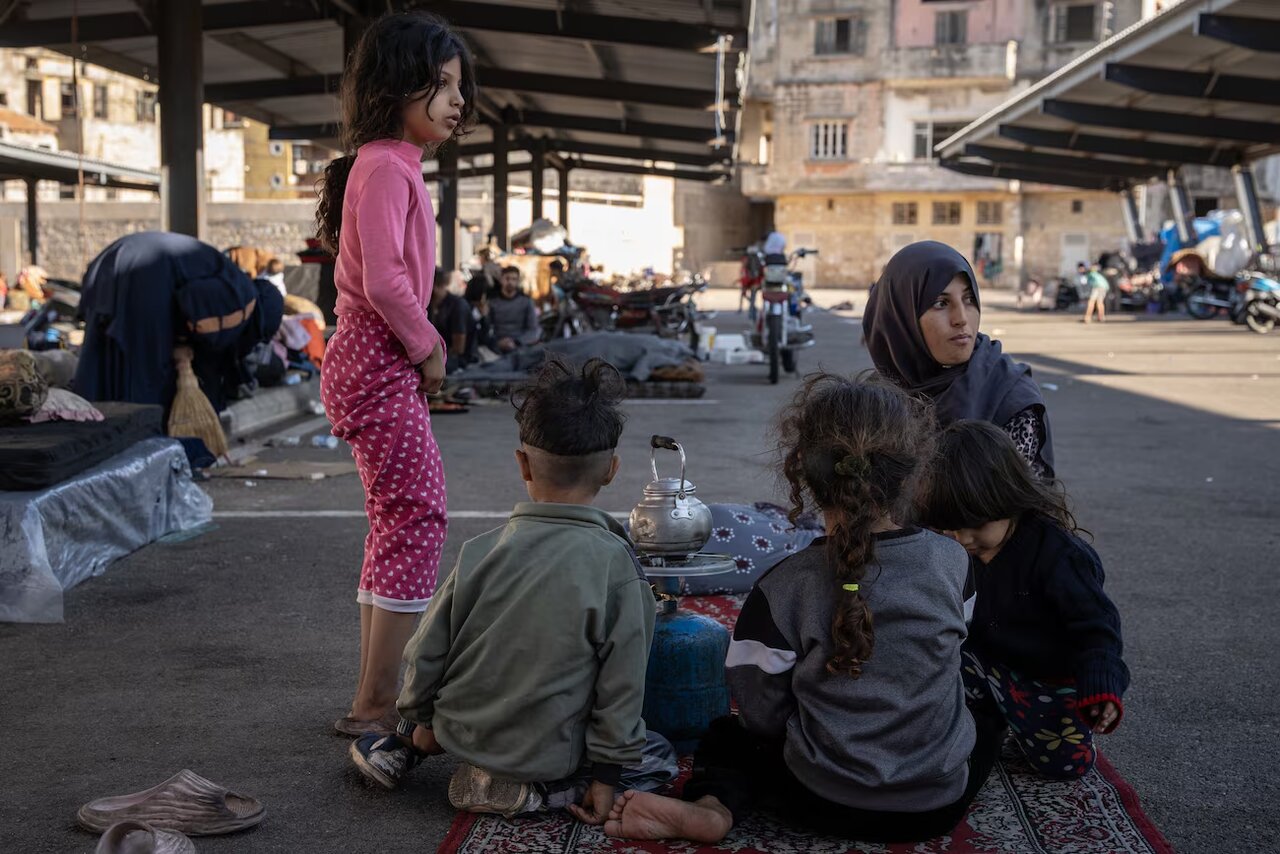Failure to respond to Lebanons displacement crisis Deliberate or just a dereliction
Failure to respond to Lebanon’s displacement crisis: Deliberate or just a dereliction?
BEIRUT - According to the International Organization for Migration (IOM), the Israeli war on Lebanon, which has intensified since September 23, has resulted in the displacement of more than 1.3 million people within Lebanese territory.

The United Nations High Commissioner for Refugees further deems Lebanon as one of the countries hosting the largest number of refugees, as more than half of its population are either refugees (from Syria and Palestine) or internally displaced due to the ongoing war.
The data shows that 47% of internally displaced persons moved to live with other families; 25% (about 191,518 displaced persons with an average of 214 people in each center) took refuge in shelters allocated by the government; 24% rented houses at exorbitant costs; 3% have no choice but to live in buildings under construction or abandoned and uninhabitable ones or stay along the roads and pitch tents in the open; and 1% have moved to secondary housing they own in safe areas.
The IOM says the governorates of Beirut and Mount Lebanon – the two most densely populated regions in Lebanon – receive the vast majority of displaced persons (whether in shelters or houses they share with other families), which increases the pressure on the already deteriorating infrastructure.
People living in unsanitary conditions face the risk of infectious diseases. The reason for this concentration is that many residents of areas considered “safe” refuse to receive displaced persons for two main reasons: the politically motivated anti-Hezbollah sentiments and the pretext of fear of being targeted by Israel.
Lebanon’s Ministry of Education and Higher Education has announced that 77% of public schools and 27% of Lebanese universities are being used as shelters for displaced persons. Even if the war stopped now, they would not be ready to launch the academic year.
However, most private schools in safe areas have opened their classes in person or virtually.
Any government would undoubtedly find it difficult to deal with such a large number of displaced persons; however, the government in Lebanon makes excuses for being unable to grapple with the situation, citing financial hardship and political incapacity.
The International Monetary Fund (IMF) confirms that the housing vacancy rate in Lebanon is estimated at 23%, which means that it can accommodate roughly a quarter of the displaced. Instead of the cost of importing prefabricated homes from Turkey (each home costs about $5,000), the government can rent hotel rooms (the cost of which does not exceed $40 per day).
If the Lebanese government wanted to shoulder responsibility and preserve the dignity of its citizens, it would have declared a general mobilization plan so that it would be possible for it to dispose of public and private property, as the laws in force regulate such matters and allow the use of private property – in times of war – in exchange for compensation for its owners.
In parallel, international organizations have not shown the same readiness during the ongoing war as they did after the Beirut port explosion. They could work with great flexibility and abandon flimsy excuses such as refusing to recognize the municipalities’ data and requesting to collect the data themselves, which makes the conditions of the displaced even worse, especially since a large number of them sleep in unfurnished residential buildings and need essentials such as mattresses and pillows, in addition to medicine and food.
In a related context, attacks on several displaced families have increased under the pretext that some are allied to Hezbollah, while other families have been expelled. However, this has not affected the way the families deal with the displaced because they are certain that the aim of the propaganda promoted by the anti-Hezbollah media is to incite public opinion and stir up sedition. The general mood in Lebanon is far removed from this seditious atmosphere.
source: tehrantimes.com